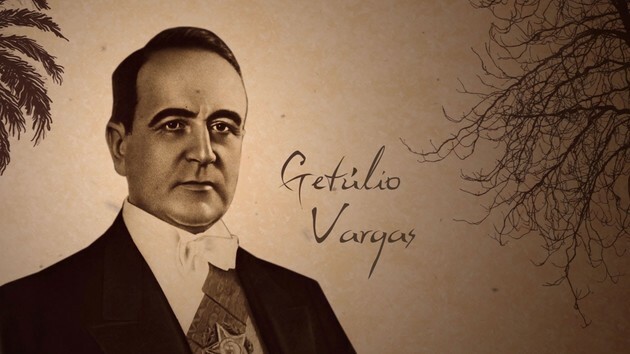Lygia Fagundes Telles is a Brazilian modernist writer. She is part of the Paulista Academy of Letters (APL) and also of the Brazilian Academy of Letters (ABL).
In 2005, Lygia received the “Prêmio Camões” for her body of work, considered the most important in Portuguese-language literature.
Biography

Lygia de Azevedo Fagundes (baptized name) was born in São Paulo, on April 19, 1923. She is the daughter of Durval de Azevedo Fagundes, public prosecutor, and Maria do Rosário Silva Jardim de Moura, pianist.
She spent her childhood in several cities in the interior of São Paulo and, since she was a little girl, showed interest in letters.
She studied at the Caetano de Campos Institute of Education, in São Paulo. Financed by his father, in 1938, he published his first book of short stories entitled “Basement and House”.
At the age of 17, she joined the Higher School of Physical Education, in São Paulo.
A year later, in 1941, she began taking a parallel course in Law at the Largo do São Francisco Law School.
Her interest in literature was important at that time, being a contributor to newspapers such as Arcadia and The balance. Both were linked to the Faculty's Academy of Letters.
During her college years, she began going to places where several literati gathered. At that moment, she met Mario and Oswald de Andrade.
In 1947, she married one of her law professors: the jurist Goffredo da Silva Telles Júnior. With him she had a son: Goffredo da Silva Telles Neto.
In 1960, the couple separated and, three years later, married film critic Paulo Emílio Sales Gomes.
In 1973, she published the novel "The girls". With this work, Lygia received the following awards: Jabuti, Coelho Neto from the Brazilian Academy of Letters and “Fiction” from the São Paulo Association of Art Critics.
In 1987, Lygia took possession of chair number 16 at the Brazilian Academy of Letters (ABL).
"Sometimes hope. Man will survive, and this certainty comes to me when I see the sea, a sea that has been carved with so much pollution, though! but resisting. I look at the mountains and marvel that they are still alive. I know that it is necessary to bet and from bet to bet I arrived at this House for the harmonious coexistence with those who bet on the word."
(Excerpt from "Inauguration Speech", 1987)
In 2001, the writer was awarded the title of "Doctor Honoris Causa" by the University of Brasília (UnB). In the same year, she received the Jabuti Prize with her book "Invention and Memory".
Curiosity
His novel titled "The girls" was made into a film in 1995. The film was directed by filmmaker Emiliano Ribeiro.
Construction
Lygia is an avid writer and brings together a wide range of short stories, chronicles and novels. In addition, she has participated in several anthologies and collections; and, she even translated and adapted several texts.
Many of the writer's books were published in other countries: Portugal, Spain, France, Germany, Italy, Netherlands, Sweden, United States, among others.
Check out the most relevant works of short stories and novels by the writer below:
Tales
- Basement and townhouse (1938)
- Before the Green Ball (1970)
- Seminary of Rats (1977)
- Mysteries (1981)
- Invention and Memory (2000)
Affairs
- Ciranda de Pedra (1954)
- Summer in the Aquarium (1964)
- The Girls (1973)
- The naked hours (1989)
Sentences
- “I tried to be modern but it didn't work. The relationship I have with my typewriter is sensual.”
- “I don't think growing old is wonderful. We get old by force, because there really isn't any other way, I've been to so many water stations, I've drunk from so many fountains – where the Fountain of Youth, where?”
- “Knowing how to interpret what they read, the student organizes ideas and produces good text. The rest is talk, false theory.”
- “So difficult life and your craft. And no one on the side to receive the totality of human beings, this in the last years of your life without much illusion...”
- “I want to be alone. I like people a lot, but sometimes I have this voracious need to get rid of everyone.”
- “Beauty is neither in the morning light nor in the shadow of the night, it is in the twilight, in that midtone, in that uncertainty.”
Want to know more? read about Intimate Prose and Modernism in Brazil.


